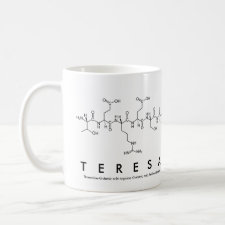
Authors: Viveiros R, Dias FM, Maia LB, Heggie W, Casimiro T
Article Title: Green strategy to produce large core-shell affinity beads for gravity-driven API purification processes.
Publication date: 2017
Journal: Journal of Industrial and Engineering Chemistry
Volume: 54
Page numbers: 341-349.
DOI: 10.1016/j.jiec.2017.06.012
Alternative URL: http://www.sciencedirect.com/science/article/pii/S1226086X17302897
Abstract: In this work, Molecular Imprinted Polymers (MIPs)-layered silica beads which have affinity for a model pharmaceutical impurity, acetamide (ACET) were developed using supercritical carbon dioxide (scCO2) technology. Silica beads were first functionalized using two different green strategies, grafting to (MPS/EtOH in scCO2) and grafting from (plasma technology). These core beads were then used as seed particles in the synthesis, in scCO2 of a MIP layer. Dynamic binding tests were performed in order to evaluate the affinity of the resulting silica core - MIP shell beads to ACET and the efficiency of its removal from an active pharmaceutical ingredient - Beclomomethasone dipropionate (API) crude mixture. ACET was preferentially retained over analogue molecules, benzamide (BENZ) and pivalamide (PIV). The core-shell MIP beads were packed in a SPE column (396.5mg in a 3mL SPE tube) and evaluated as a potential gravity-driven purification device, enabling the removal of 100% of ACET whilst losing only 0.37% of API from a model mixture solution - 10mL of ACET and API (0.25mgmL-1 + 3.5mgmL-1)
Template and target information: acetamide, ACET
Author keywords: Supercritical carbon dioxide, 3-(Trimethoxysilyl) propyl methacrylate, Plasma technology functionalization, Genotoxin removal, Surface imprinting technique



Join the Society for Molecular Imprinting

New items RSS feed
Sign-up for e-mail updates:
Choose between receiving an occasional newsletter or more frequent e-mail alerts.
Click here to go to the sign-up page.
Is your name elemental or peptidic? Enter your name and find out by clicking either of the buttons below!
Other products you may like:
 MIPdatabase
MIPdatabase









